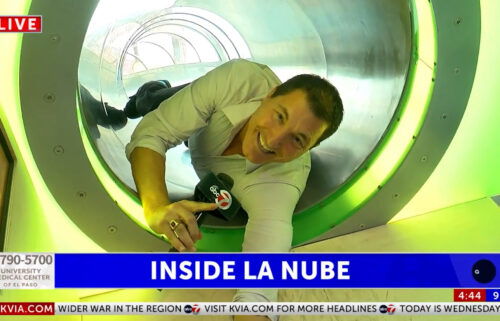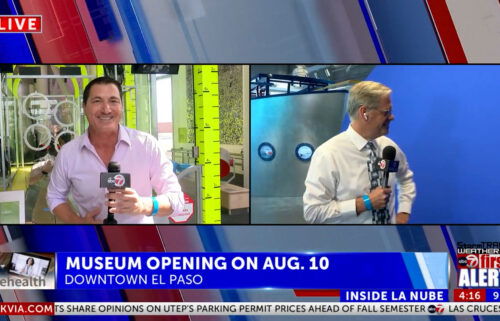Company creates device to treat pain and heal injuries without use of prescription drugs
Click here for updates on this story
PITTSBURGH (KDKA) — We may not talk about it as much with the pandemic, but the opioid crisis continues.
An estimated 10.1 million people abused opioids last year. Now doctors are looking for alternatives and using prescriptions less.
“If you can prevent somebody from ever turning to opioids, you can prevent them from getting addicted,” said Chaz Jannuzi.
Jannuzi and his business partner created Match One in 2014, followed by the American Foundation for Opioid Alternatives. The company has two devices that help to treat pain and heal injuries without the use of prescriptions.
“We both lost very dear high school friends we played football with to overdose from addiction caused by prescription pills,” Jannuzi said.
In a recent study, researchers found youth in high-injury sports are roughly 50 percent more likely to use opioids to manage pain.
“Everything can be pushed off after this game, after the next game, after the tournament or the next one or the championship game. I want to get through and deal with it later, but it’s too late. Now you’ve captured those people and they are hooked,” said Dr. Marco Alcala with Allegheny Health Network.
In March, Jannuzi’s company donated 40 Sport-Z devices to Allegheny Health Network. Those devices are now in the hands of AHN’s athletic trainers in 28 local high schools. The devices are already helping to bring relief to parents.
“Our biggest fear is if he’s going to need pain medication. This last time, he did and it worried us,” said Tracey Mundorf, who’s the mother to an Avonworth High School student-athlete.
Her son, Anthony, plays three sports and has been injured in all three. He’s using Sport-Z and already seen progress.
“He’s well on his way and I think we are much further along than we were a few weeks ago,” said Ryan Johnson, AHN’s athletic trainer at Avonworth.
Sports-Z is a pocket-sized device that can be used in different settings and worn at night to treat pain and heal an injury.
“It sends electrical shockwaves through your wave. You can feel it and it tingles your nerve to make your nerve not feel the pain. Then it pumps the muscle and circulates fresh blood,” Jannuzi said
Jannuzi hopes this donation is just the beginning. He wants to get the devices in more schools, especially in lower-income areas as there is a growing need for opioid alternatives.
Please note: This content carries a strict local market embargo. If you share the same market as the contributor of this article, you may not use it on any platform.




